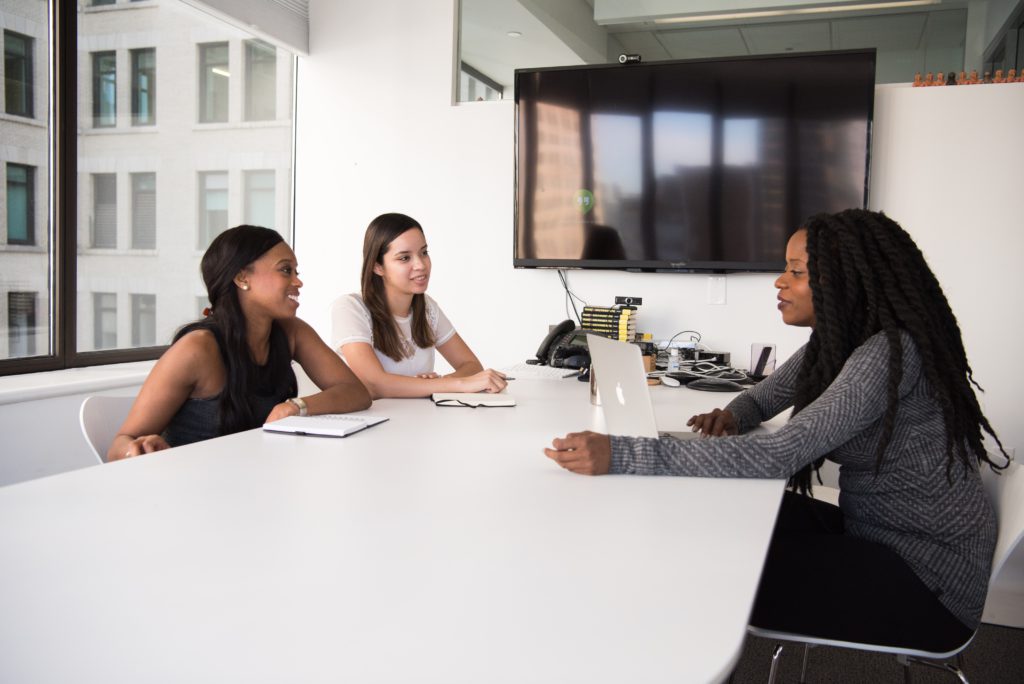Welcome, hiring managers! In today’s fast-paced job market, it’s crucial to not only find top talent but also to build meaningful relationships with candidates. By humanizing the interview process, you can create a positive experience that resonates with candidates and sets your company apart.
Let’s explore key strategies to attract top talent by fostering a genuine connection throughout the interview process.
Give Space and Time to Warm Up
Think of the interviewing process as a ballroom dance, where the interviewer takes on the role of the lead and the candidate as the follower. Just like in a dance, if the lead doesn’t guide with precision and confidence, there won’t be synchrony or rhythm, and the follower may feel uneasy and seek a different partner. As an interviewer, it’s essential to lead right and create a harmonious environment for the candidate.
As the lead, it’s important to set the tone for the interview by being attentive, supportive, and respectful. Give candidates the space and time to express themselves fully without interruption. This allows them to showcase their true potential and share relevant experiences that may not have come up otherwise.
Remember, just as a skilled lead in ballroom dancing makes the follower feel comfortable and confident, a skilled interviewer creates an environment where candidates can shine. By leading right in the interviewing process, you set the stage for a positive and engaging experience that will attract top talent and make candidates eager to join your team.
Start the interview with a casual conversation to build rapport and establish a connection. Ask about their interests, hobbies, or any shared experiences you may have. This not only helps candidates feel more relaxed but also demonstrates your genuine interest in getting to know them as individuals beyond their professional qualifications. This allows them to showcase their true potential and helps you understand their personality beyond their resume.
So, let’s put on our dancing shoes and lead with grace and finesse. Together, we can create an interview process that cultivates meaningful connections and brings out the best in both the interviewer and the candidate.

Make Mental Health a Priority
Recognize that candidates may experience stress and anxiety during the interview process. Show empathy and understanding by creating a supportive environment. Encourage open dialogue about mental health in the interview process, and be flexible with interview arrangements to accommodate individual needs. Let’s create an interview process that focuses on potential and possibilities, rather than dwelling on the past.
Think before you ask, how would you feel to be in an uncomfortable situation? Asking sensitive questions like a career break can cause personal trauma to the candidate. The bigger question for you is how much is it going to impact your work if you focus on the past of the candidate?
Be mindful of the potential impact of such questions on a candidate’s mental well-being. Instead, focus on their skills, experience, and potential for future growth. By putting mental health at the forefront, you create a safe and respectful environment that encourages candidates to showcase their true abilities. Evaluating candidates based on their potential and future aspirations, rather than dwelling on their past, allows you to make fair and unbiased hiring decisions.
Building a supportive and compassionate workplace starts with the interview process. By prioritizing mental health, you not only attract top talent but also foster a culture that values well-being and inclusivity.
Remember, a candidate’s career journey is unique, and everyone deserves the opportunity to flourish and succeed. Together, we can build a brighter future for candidates and organizations alike.
Mind Your Language
The words we choose can greatly impact how candidates perceive the interview process. Use inclusive language that promotes diversity and avoids bias. Steer clear of technical jargon and acronyms that may alienate candidates. By using clear, concise, and relatable language, you create an atmosphere where candidates feel understood and valued.
Firstly, it’s important to acknowledge that certain questions about past layoffs, terminations, or frequent job changes can be sensitive and potentially trigger emotional responses in candidates. While it’s advisable to avoid these questions altogether, if they are necessary for the role, approach them with utmost politeness and support.
Remember, your 30-minute conversation with a candidate can inadvertently bring forth hidden traumas that they may have yet to address. It’s essential to create a safe space where candidates feel comfortable discussing their experiences without feeling shame, guilt, disappointment, anxiety, worry, or anger.
Instead, focus on what a candidate can offer in the future and the lessons they have learned from their past experiences. Emphasize their growth, resilience, and ability to adapt. By shifting the conversation towards their strengths and accomplishments, you not only uplift the candidate’s spirits but also gain valuable insights into their potential to contribute to your organization.
Ultimately, the aim is to understand how candidates have grown and evolved through their experiences, and how they can bring those learnings to benefit your team. By placing greater emphasis on their personal and professional development, you create an environment that values growth and encourages candidates to showcase their strengths.
That does not imply that you do not ask questions about weaknesses but as Simon Sinek suggested, ask creatively “I hate surprises. Can you tell me something that might go wrong now so that I’m not surprised when it happens?”

Lead with Humanity
In the interviewing process, you may encounter candidates from diverse backgrounds and experiences that differ from your own. This presents a valuable opportunity for both personal growth and to foster diversity and inclusion in the interview process within your organization. Embracing these differences and approaching each candidate with an open mind is essential.
Take the initiative to learn about different cultures, customs, and backgrounds that you may encounter during interviews. Conduct research beforehand, so you can better understand and appreciate the candidate’s unique perspective. This preparation demonstrates your commitment to creating an inclusive interview practice and ensures that you can approach the interview with respect and sensitivity.
During the interview, be mindful of potential biases and unconscious biases in hiring. Treat each candidate as an individual, regardless of their background or origin. Show genuine curiosity and ask thoughtful questions that foster a deeper understanding of their experiences and perspectives. By actively listening and engaging in meaningful conversations, you create an environment where candidates feel valued and respected.
Remember, diversity and inclusion in hiring brings fresh ideas, innovation, and a broader range of experiences to your organization. By embracing candidates from different backgrounds, you enrich your team and foster a culture of inclusivity.
Leading with humility means recognizing that there is always room to learn and grow. Embrace the opportunity to expand your knowledge, challenge your own biases, and celebrate the diversity that makes your organization stronger.
Let’s embark on this journey of discovery together, embracing the beauty of diversity and creating an inclusive interview process that celebrates the richness of each candidate’s background. By leading with humility, we can foster an environment where everyone feels welcome and valued.
Don’t Rely on Gut Feeling Alone
As tempting as it may be to rely solely on your gut feeling when making hiring decisions, it’s important to recognize its limitations. People are complex beings, and even the most experienced interviewers can be surprised by candidates. Trusting your gut feeling alone can lead to missed opportunities for diversity, equity, and inclusion, or even hiring the wrong person who excels at giving you what you want to hear.
One of the most insightful lessons I’ve learned from an amazing manager is that people always can surprise us. No matter how confident you are in your ability to assess and understand others, it’s vital to approach hiring decisions with a balanced and objective mindset.
By solely trusting your intuition, you may inadvertently overlook candidates who have immense potential and unique perspectives to offer. Diversity of thought, experience, and background can enrich your team and foster innovation. It’s essential to give everyone a fair chance, even if they may not fit the traditional mold or align perfectly with your initial expectations.
To make well-informed hiring decisions, complement your gut feeling with objective assessments. Utilize behavioral interviews, skills assessments, and reference checks to gather a more comprehensive understanding of a candidate’s capabilities and potential. This approach ensures that you are considering a candidate’s qualifications, achievements, and cultural fit in hiring beyond just your initial impression.
Remember, hiring decisions impact not only the individual being hired but also the entire team and organization. By relying on a combination of intuition and evidence-based evaluation, you increase the likelihood of finding the right fit for your company’s values, goals, and culture.
Let’s embrace a holistic approach to hiring that values both the human element and objective assessments. By doing so, we can create diverse and inclusive teams that thrive on the unique talents and perspectives of each individual. Happy interviewing!

Share Information to Set Expectations
Transparency is key to building trust with candidates. Provide a clear overview of your company’s values, expectations, and growth opportunities. Share information about the job role, team dynamics, and company culture. This helps candidates envision themselves as part of your organization and allows them to assess if it’s a good fit for their career aspirations.
Perfection Unlikely, Potential More Telling
Instead of focusing solely on a candidate’s past accomplishments, consider their potential to learn and grow. Top talent may not always have a flawless track record. Look for candidates who demonstrate a growth mindset in the workplace, adaptability, and a hunger for continuous improvement. By assessing their potential, you can identify those individuals who will thrive in your organization’s dynamic environment.
Assess the attitude and fit of a candidate, determine their training needs, and evaluate their willingness to contribute to mutual success. While clear answers are important, it’s also crucial not to judge candidates solely based on whether they followed a specific method like the STAR method.
Instead, let’s focus on the overall impression the candidate leaves during the interview. We can evaluate their communication skills, problem-solving abilities, and how well they align with the company’s values and goals. By asking open-ended questions that encourage candidates to share their experiences, we can gain insight into their attitude, potential, and willingness to contribute to the team’s success.
Remember, each candidate is unique, and it’s important to consider their strengths and weaknesses.
Avoid Harsh Judgment on Gaps or Changes
Life is full of unpredictable twists and turns, which may result in employment gaps or career changes for candidates. Remember, a candidate’s career break does not define their ability to contribute to your organization. Consider their overall qualifications, motivation, and enthusiasm for the role. Candidates may have taken career breaks for various reasons, such as personal development, caregiving, or health-related issues.
Instead of making snap judgments, approach these situations with curiosity and empathy. Allow candidates to explain their circumstances. Sometimes, these experiences can bring valuable skills, resilience, and a fresh perspective to your team.
By embracing these interviewing techniques, you can establish genuine connections with candidates and attract top talent to your organization. Remember, the interview process is not just about evaluating skills; it’s about building relationships that foster growth and success. So, let’s humanize the hiring process together and create a brighter future for both employers and candidates alike.
Thank you for reading, together, we can build a hiring process that uplifts candidates and ensures a creating a positive candidate experience for both parties involved. and happy interviewing!






